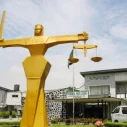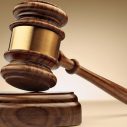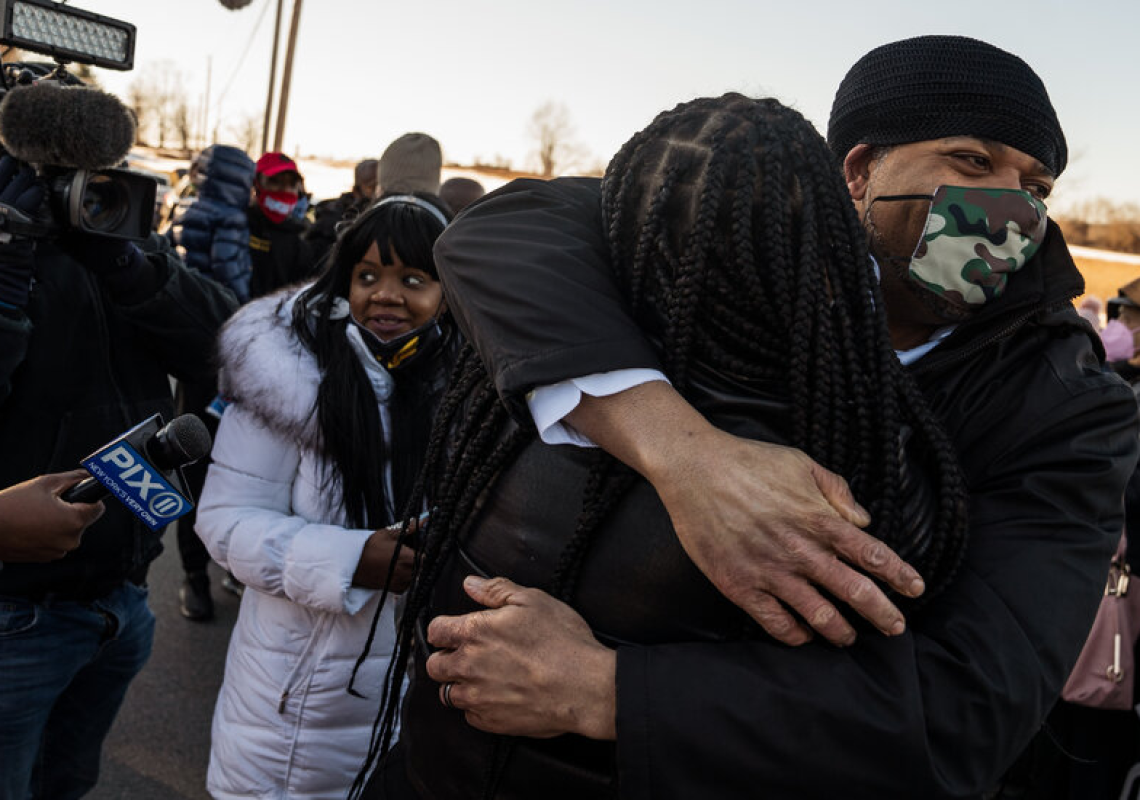Advertisement
Supported by
Grievances against 21 Queens prosecutors shared publicly online prompted a rebuke from the city, and has led to a lawsuit that raises questions about accountability in the justice system.
Send any friend a story
As a subscriber, you have 10 gift articles to give each month. Anyone can read what you share.
By Jonah E. Bromwich
When three men convicted of murders they did not commit were exonerated in March, a group of law professors saw an opportunity to shed light on the kind of prosecutorial misconduct that had put the men in prison for decades.
Prosecutors working the men’s case had failed to turn over important evidence and had made false statements at trial, a judge found — textbook misconduct. And they were far from alone in the Queens district attorney’s office.
Normally, accusations of misconduct are handled out of public view by a little-known state committee. But the professors wanted to make some noise. They filed grievances against 21 Queens prosecutors, and instead of keeping their complaints quiet, they built a website and published everything online — and made plans to expand the effort to other boroughs.
The blowback from New York City was swift. A city lawyer called the grievances an abuse of the system and said that they had “concerned” local prosecutors. He accused the professors of politicizing the process and violating the law in a letter sent directly to the grievance committee responsible for disciplining lawyers.
The city’s pushback against the professors included the threat of further action if they continued to file grievances, according to a lawsuit filed publicly on behalf of the professors and their partner organization, Civil Rights Corps, in federal court in Manhattan this month.
The dispute comes at a time when the justice system is attempting to reckon with the ingrained power of prosecutors, and the potential for abuse of that power. Concerns about prosecutorial misconduct have risen over the past decade as wrongful convictions have continued to come to light, aiding the election of a number of prosecutors who have urged a different approach, most recently Alvin Bragg in Manhattan.
Now, according to the professors’ lawsuit, New York City is arguing that the process of seeking consequences for prosecutorial misconduct should effectively be shielded from public view.
Ellen Yaroshefsky, a distinguished professor in legal ethics at Hofstra University who submitted an affidavit about prosecutorial misconduct in Queens in an unrelated case, said that the actions of the city’s lawyer, officially known as the corporation counsel, were “shocking.”
“These plaintiffs have ruffled the feathers of very powerful actors,” said Ms. Yaroshefsky, who was not one of the professors who filed the grievances.
Asked about the lawsuit, a spokesman for the city’s law department, Nick Paolucci, said that while prosecutors who committed misconduct should be held accountable, the professors’ attempted use of the grievance process was contrary to the law.
“Their frustration with their lack of progress to increase accountability through advocacy and the legislative process does not entitle them to misuse the attorney grievance process or bring a frivolous lawsuit to bring attention to their goals,” he said.
The Queens district attorney did not respond to a request for comment.
The 21 grievances were based on judicial findings of misconduct. In many cases, the convictions that the prosecutors’ misbehavior had helped to win had been reversed or overturned. But the prosecutors, who worked to send innocent people to prison or otherwise violated professional standards, had not been held accountable. Indeed, a number have continued to work as prosecutors in Queens, or elsewhere in New York.
The city has argued that the professors’ actions violated a New York law that requires that complaints related to lawyers’ conduct be kept private unless judicial authorities decide otherwise. The professors are asking that a judge declare that law to be unconstitutional, a violation of their First Amendment rights.
The grievance process effectively allows lawyers to police themselves. Born in a time when prosecutorial misconduct was a little-discussed feature of the criminal justice system, the process is highly obscure, handled by court-appointed committees that conduct their work in private.
“Prosecutors are notorious for escaping being investigated when there are concerns that they violated legal ethics,” said Paul Butler, a professor at Georgetown University Law Center and a former federal prosecutor. He added that when prosecutors were found to have committed wrongdoing, they were notorious for escaping consequences, too.
Various commissions and task forces have recommended that the process be overhauled to provide transparency, but change has been slow to arrive. In 2018, New York State passed a law establishing a commission on prosecutorial conduct, giving the new body the power to investigate prosecutors’ behavior. The state’s official association of district attorneys objected, and a judge ruled the commission to be unconstitutional.
A version of the law was passed again earlier this year, but it left the commission with little independent disciplinary power. A spokeswoman for the district attorneys association said that as far as she knew, the commission had not even been established.
In the absence of any other oversight body, the professors were left with the grievance committees.
One of the professors, Cynthia Godsoe of Brooklyn Law School, said in an interview that the group was trying to change the perception that prosecutors should always be trusted to be ethical, and that convictions should be taken as the last word on a person’s guilt.
“We know that’s not true,” she said. “There’s a fairly high rate of prosecutorial misconduct that goes unchecked.”
New York’s grievance committees evaluate complaints against lawyers and have the power to recommend the disbarment of those they rule against. But they rarely recommend such action against prosecutors who have committed misconduct in the course of their official roles.
By posting the grievances they had filed publicly, the law professors had hoped to spur the grievance committee toward taking action — a strategy that has become more common over the past several years. In January, dozens of lawyers promoted a complaint seeking to have Rudolph W. Giuliani’s law license suspended; they got their wish in June.
“Were they motivated by the fact that the complaints were filed publicly so that a failure to act expeditiously would look bad?” asked Bruce Green, who directs a center for legal ethics at Fordham University.
“It could well be that the public nature of the complaint was useful,” said Mr. Green, who was not part of the group that filed the grievances.
But in the case of the Queens grievances, the city reacted, the lawsuit said, asking that the professors be essentially severed from the complaints they had filed. They would not be entitled to updates on any action the committee might take. And they would not be able to file appeals against any decision rendered. The committee assented.
In their lawsuit, the professors argued that the purpose of the city’s action had been to thwart the professors in their mission, effectively shielding prosecutors from actual accountability.
“New Yorkers also deserve to know what wrongs these public officials have committed, and are committing, in their name,” the lawsuit said.
Advertisement






